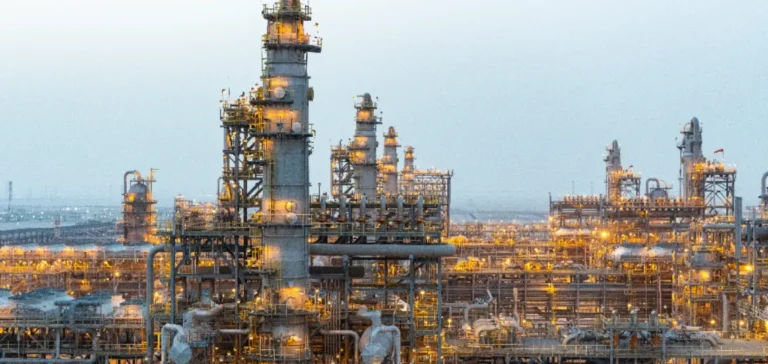Aramco has reached a new technological milestone by integrating several autonomous artificial intelligence (AI) control agents at its Fadhili gas plant in Saudi Arabia. This initiative, conducted in collaboration with Japan’s Yokogawa Electric Corporation, marks a significant advancement in industrial automation applied to large-scale energy infrastructure.
An autonomous optimisation system based on reinforcement learning
The solution implemented is based on the Factorial Kernel Dynamic Policy Programming (FKDPP) reinforcement learning algorithm, developed by Yokogawa. This system uses multiple coordinated AI agents to autonomously manage the complex operations of the acid gas removal (AGR) unit, a critical part of natural gas processing.
The deployment was carried out in phases, with agents progressively integrated into different sections of the unit until they fully took over the central process. Before on-site implementation, a plant simulator was developed to train the AI agents and verify their reliability. These agents were then embedded into Yokogawa’s existing CENTUM VP control system to leverage the plant’s current safety functions.
Cost reduction and increased operational automation
According to initial results, the automation has led to a 10 to 15% reduction in amine and steam consumption, as well as an approximate 5% decrease in overall energy usage. The system has also improved process stability and significantly reduced the need for manual operator interventions, even under changing environmental conditions.
The project is part of a broader programme by Aramco to expand the use of artificial intelligence across its industrial operations. The company aims to leverage this for operational efficiency gains while strengthening its position in energy-applied technologies.
Towards autonomous industrialisation
The development of such technological solutions aligns with Yokogawa’s strategy to transition from industrial automation to industrial autonomy, a concept referred to as IA2IA. This large-scale deployment in a strategic gas facility demonstrates the real-world applicability of digital autonomy in complex, safety-critical environments.
The Fadhili plant, with its high processing capacity, serves as a representative testing ground for this type of innovation. The system is still under evaluation, but its initial performance paves the way for the extension of these AI agents to other energy facilities operated by the group.






















